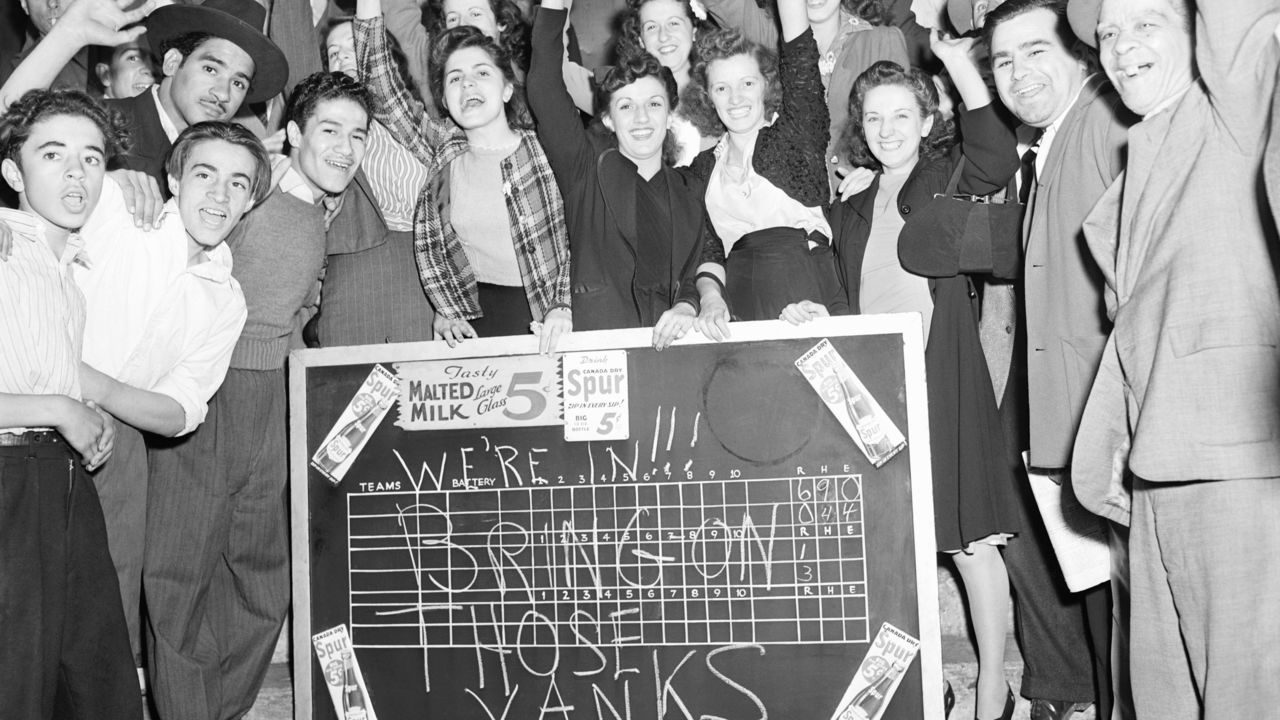MLB regular-season excellence has become an afterthought. Let's fix that
There are few certainties in life, but one is that playoff formats of major North American sports always expand, they don't contract. Television dollars dictate that.
But this is becoming problematic for Major League Baseball in terms of how it defines its champion, more so than in other sports.
One reason MLB playoff expansion feels unsatisfying to many fans: it follows a grueling regular season, the greatest volume of games among major sports. The main purpose today of 162 games played over six months is to set the seeding for a larger playoff field through which baseball crowns its champion.
That field now includes 40% of all teams, up from 28.5% when the wild-card era began in 1995, and from 16.7% in the first year of league championship series play in 1969.
MLB has nearly caught up to the NFL (43.5%) in share of teams to reach the postseason. The NHL and NBA both admit more than half their teams to the playoffs.
MLB always had a tradition of valuing its regular season more than those of other sports, resisting major playoff expansion until its post-lockout configuration in 1995. It has added an extra postseason team in both leagues twice since then, despite baseball being a sport that's not designed to be played in small samples. Larger samples are required to even out its peaks and valleys, and to determine true, overall performance.
The NFL and NBA translate more naturally from the regular season to the postseason. In the NFL, Tom Brady tosses the vast majority of passes for the Tampa Bay Buccaneers, whether in the playoffs or the regular season. LeBron James is the dominant decision-maker for the Los Angeles Lakers in the playoffs and regular season.
But Jacob deGrom can't make every pitch for the New York Mets. Baseball is more random, especially in a small sample. Its rosters and contributors vary from game to game. With an increasingly wider field combined with the variance of short playoff series, the best teams will less often win World Series titles. The Braves had the fifth-best record in the National League last season and a worse record than two American League teams that didn't even make the playoffs, but Atlanta won the World Series.

Moreover, how baseball is played during its regular season is becoming increasingly different from the postseason.
Batters are facing even more daunting stuff from the mound because of how playoff pitching is deployed. The average four-seam fastball velocity is 95.2 mph so far this postseason, a record, and up from 93.9 mph in the regular season. Pitchers' stuff is generally better and batting averages are lower in October; in fact, batters are hitting only .217 so far this postseason. Fewer runs are scored in the playoffs, but home runs make up a greater percentage of October scoring. The greater number of off days and more urgency mean a club's best pitchers absorb a greater percentage of innings than they would in the regular season.
Baseball is essentially a sport of two separate seasons: one a six-month marathon, and the other a one-month sprint with all the glory attached. The top three champions it recognizes - the World Series winner, contested by the American and National League champions - are all tied to October performance.
How can we bring more meaning back to the regular season? One modest proposal: Either add another trophy for regular-season success or redefine what MLB considers to be AL and NL champions.
In fact, this is how the major leagues operated for years when they were separate entities.

From 1876 to 1968, for nearly a century, the league pennants went to the clubs with the most regular-season wins. When baseball went to two divisions in each league in 1969 and those winners faced off in the league championship series, that pennant distinction went to the series winner.
But the notion of which teams are the AL and NL champions ought to be returned to regular-season performance.
Even though commissioner Rob Manfred once referred to the World Series trophy as a "piece of metal," trophies, pennants, and rings are meaningful. They are durable reminders of what was accomplished. Flags - including those of the pennant-shaped variety - fly forever.
Without a significant pennant, trophy, or another way to recognize and remember performance over the course of a six-month regular season, a truly excellent season is more easily forgotten if that same season doesn't include ultimate success in October.
For instance, the Mariners won a record 116 games in 2001 but have nothing to show for it in Seattle except for an AL West Champions banner. The 92-win Arizona Diamondbacks are remembered as 2001 world champions, in part because they were better built for October - they had two aces who could pitch more often because of more off days in the playoffs. Randy Johnson and Curt Schilling combined for 34.6% of Arizona's regular-season innings but 58.2% of the club's postseason innings that year. They were playing a different game in October.

The San Francisco Giants won an MLB-best 107 games last year but lost in the division series. As they celebrated their 2021 NL West title, they wore T-shirts with the slogan "Built for October" printed across their chests. But the Giants weren't; they were built for April through September.
The 2019 Los Angeles Dodgers won 106 games but have nothing commemorating the year. The display area below the club level at Dodger Stadium only features placards for World Series champions.
The playoffs are designed to create a World Series champion and manufacture drama. It's great for TV. Teams performing well in this tournament should be rewarded. But the regular season is a different animal, a different test, and it should amount to something beyond seeding.
In Europe, soccer teams have the opportunity to win multiple trophies in any given year. Tournament play is celebrated but so too is sustained excellence over the course of the season.
Perhaps there could be further rewards for regular-season excellence: a bonus for players, guaranteed All-Star Games for the city, or something more creative tied to incentivizing success.
Increasingly, the regular season and postseason are diverging from how they're played - it's time to recognize that and reward them differently. And if a club wins multiple titles, if it's built for regular season and World Series success, it's elevated to a different status, that of a truly elite club.
Instead of becoming more like the other major North American pro sports, MLB should lean into what makes it different: its regular season. And that means we're going to need another trophy.
Travis Sawchik is theScore's senior baseball writer.